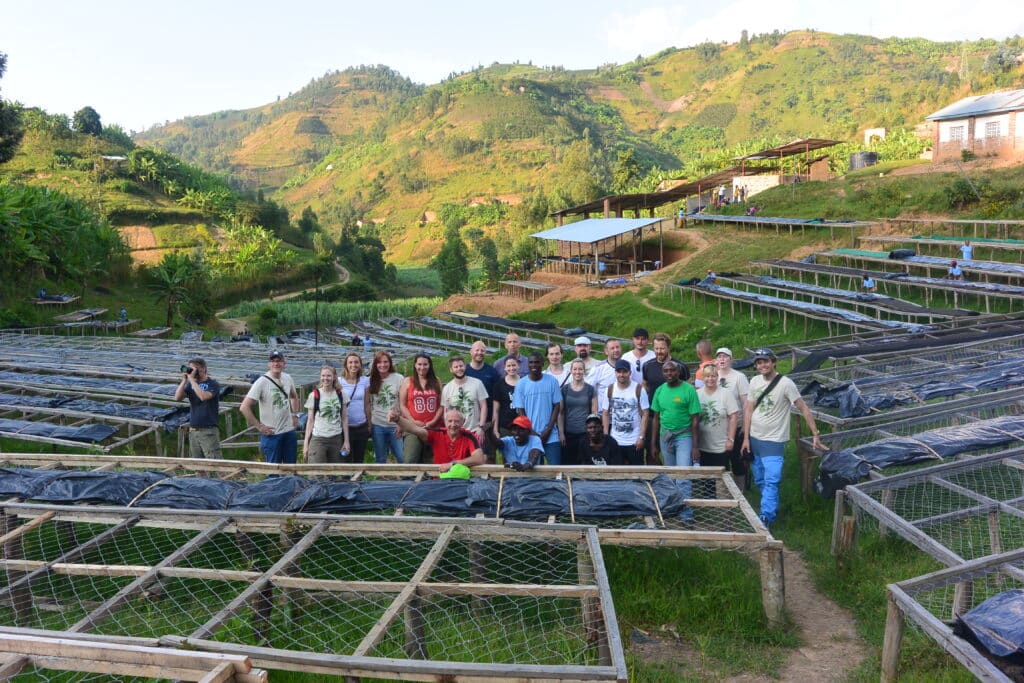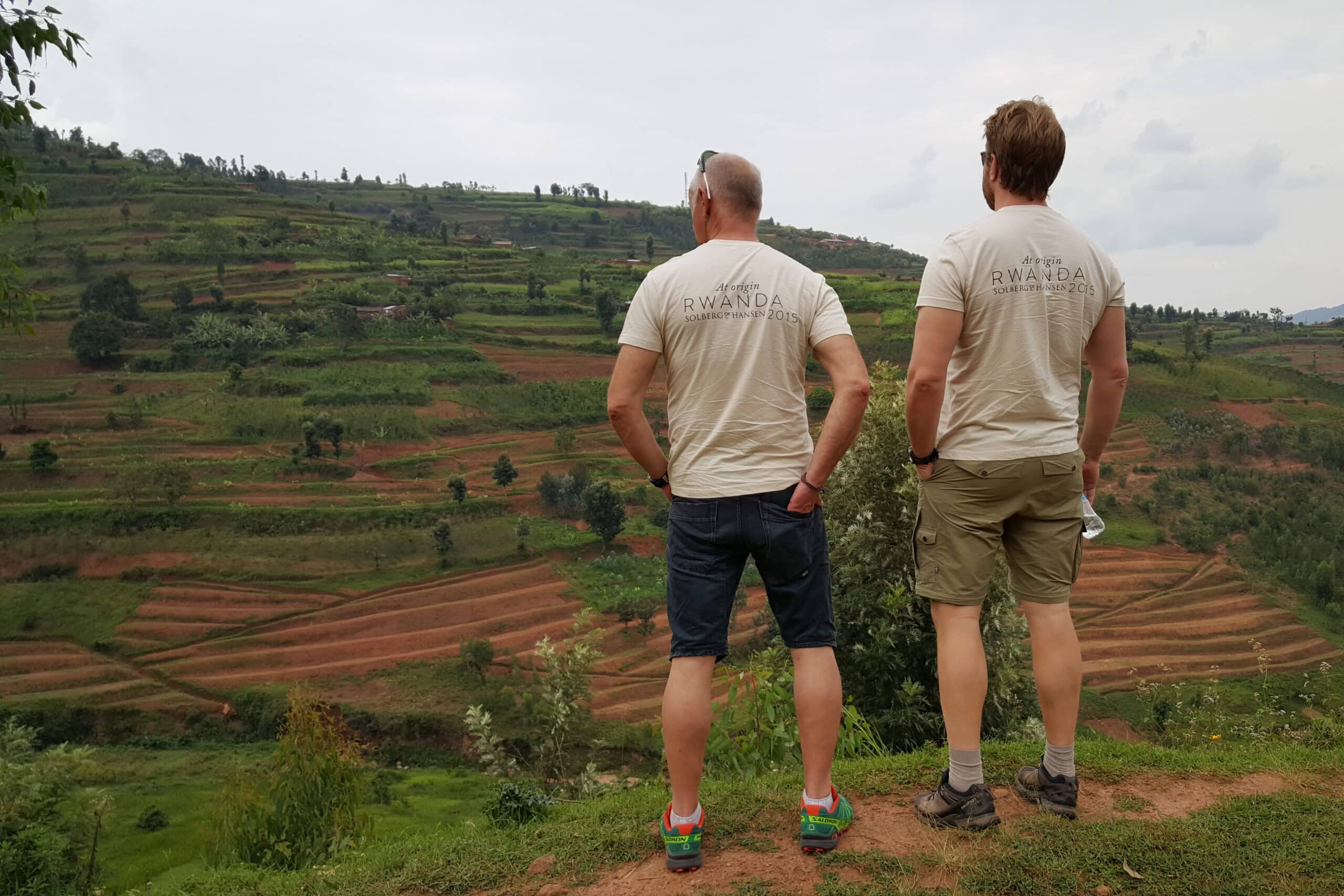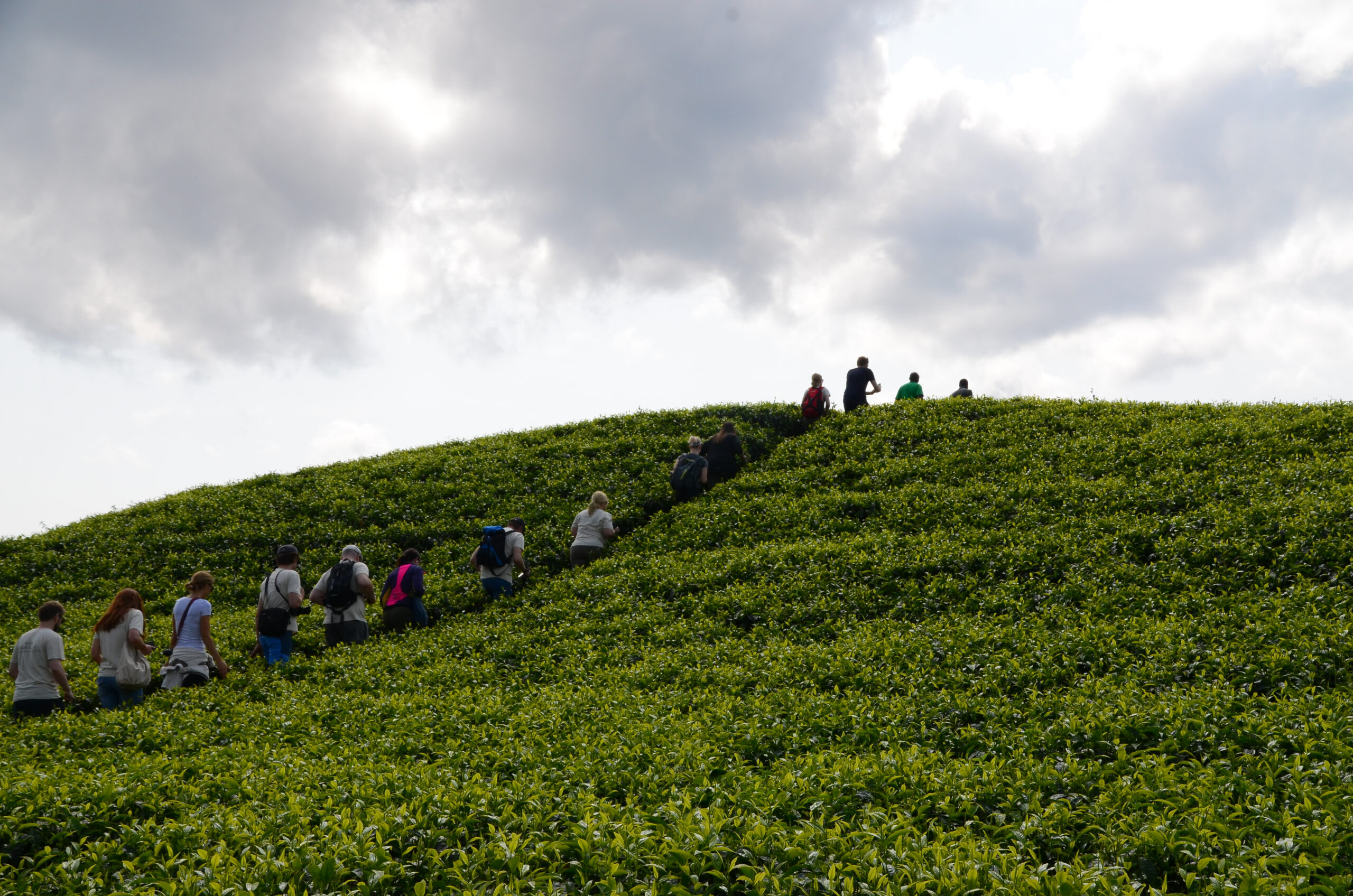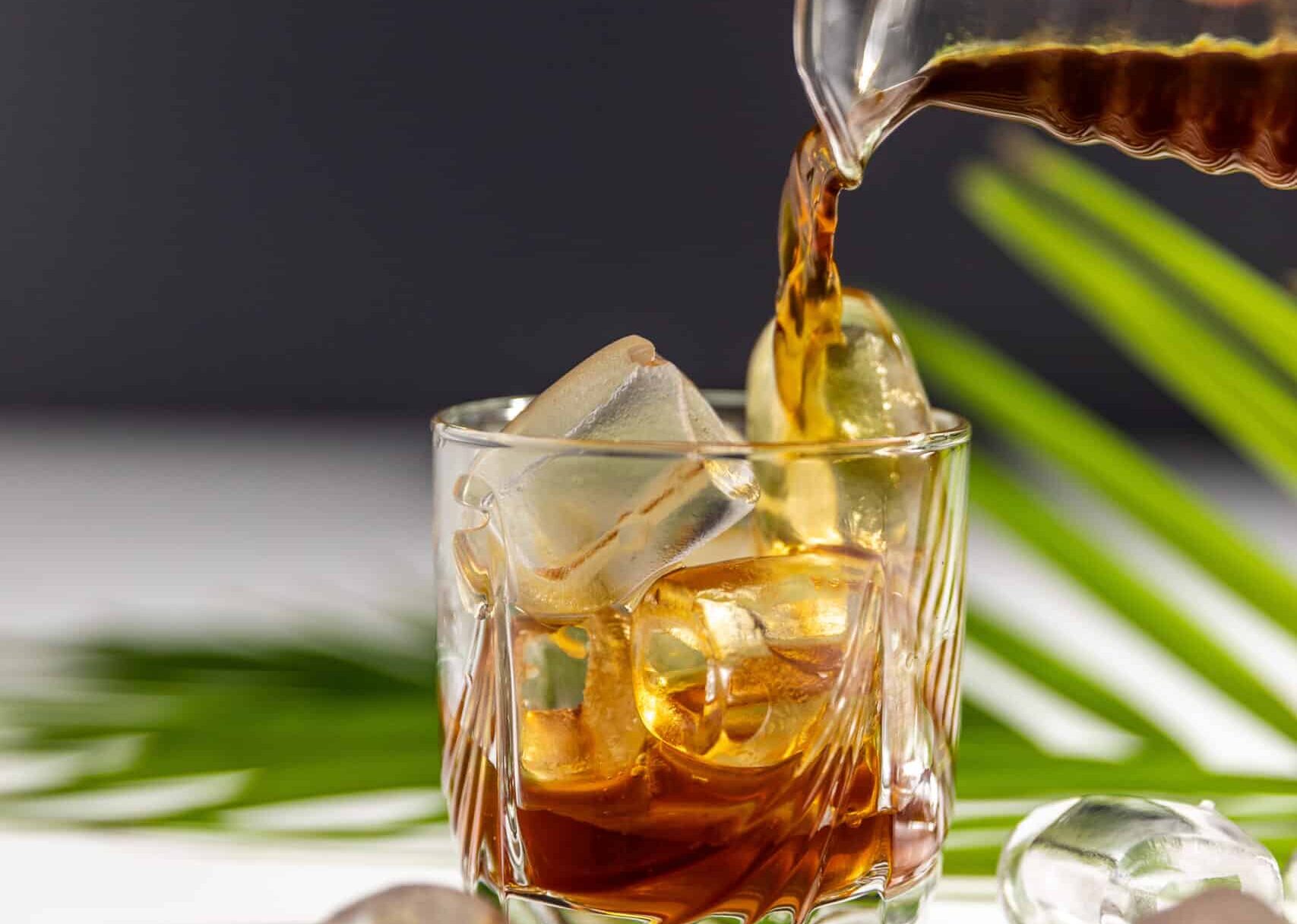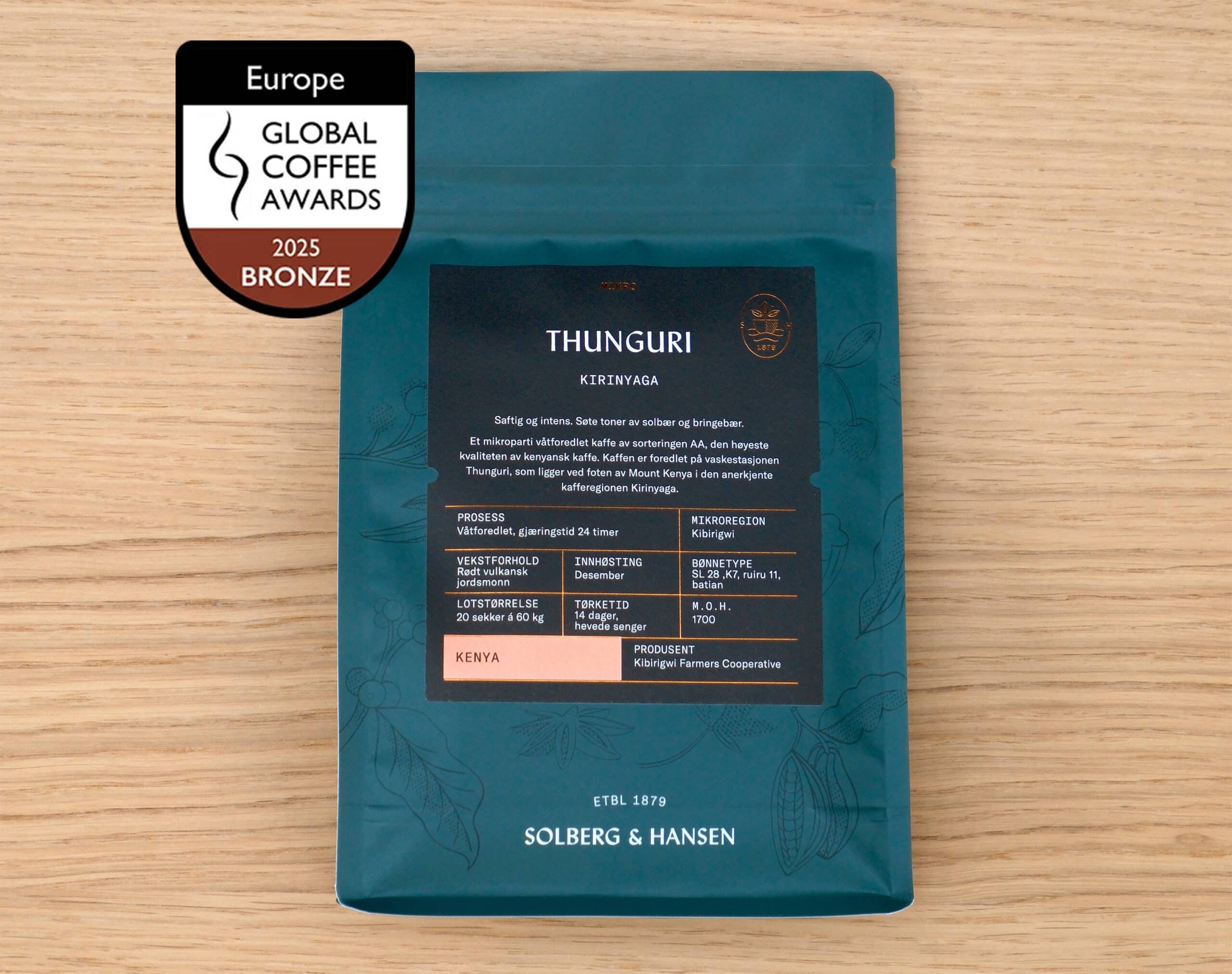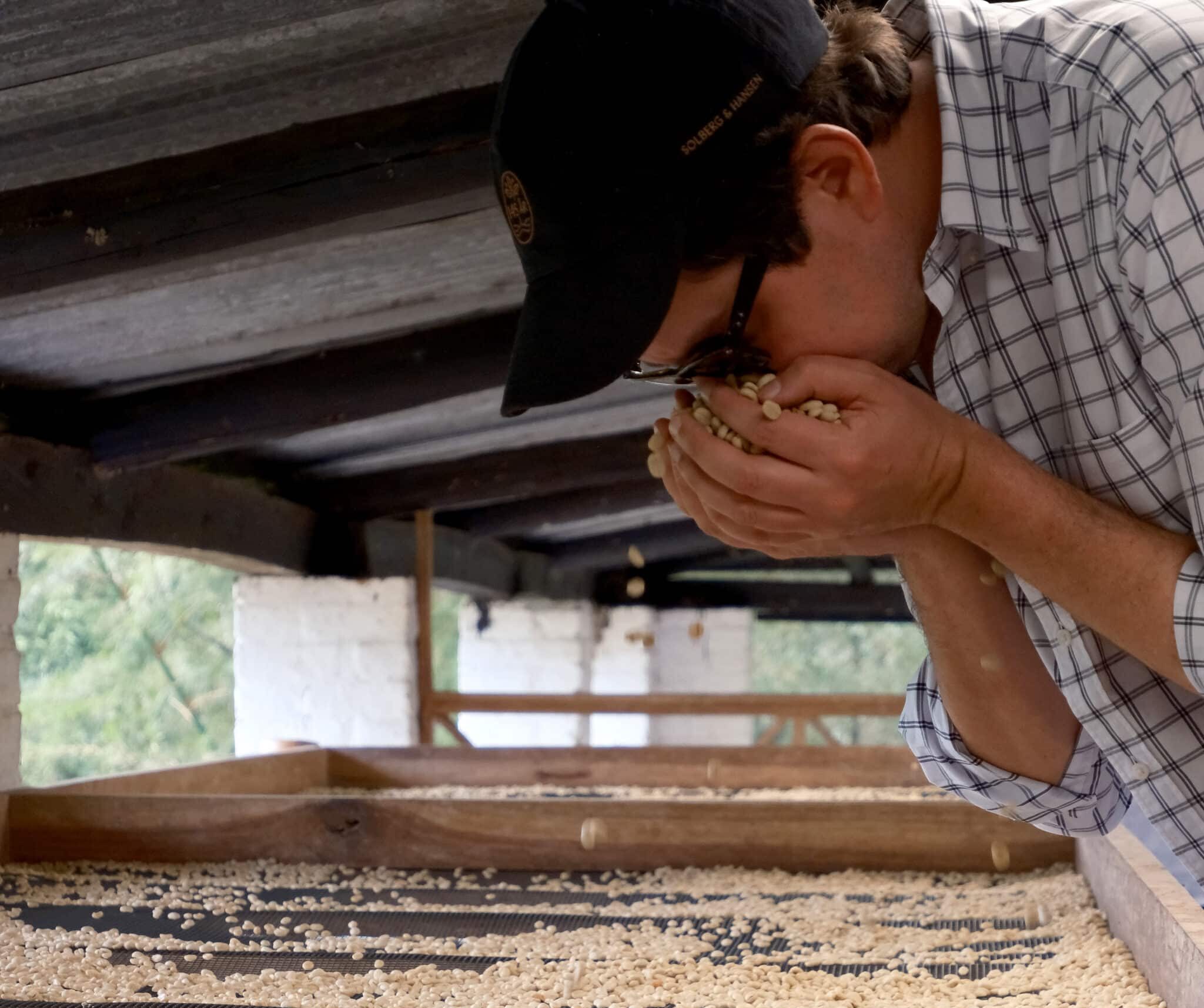The following morning, we get into a Toyota Hiace minibus that will take us to Remera, a washing station 15 miles south of Kigali in one of Southern Province's picturesque valleys. From here, we've been buying the Buf Remera relationship coffee from Samuel and his mum, Ephiane Mukashyaka, since 2008. The bus filled with pale tourists arouses curiosity among all the people travelling along the highway. The lush vegetation rolls into the terrain of green and rounded mountain peaks. On the way to Southern Province, we stop at the King's Palace, which takes us back to Rwanda's prehistoric kingdom. Perhaps most notable is the Inyambo cow herd, which boasts the most spectacular set of horns in the kingdom.
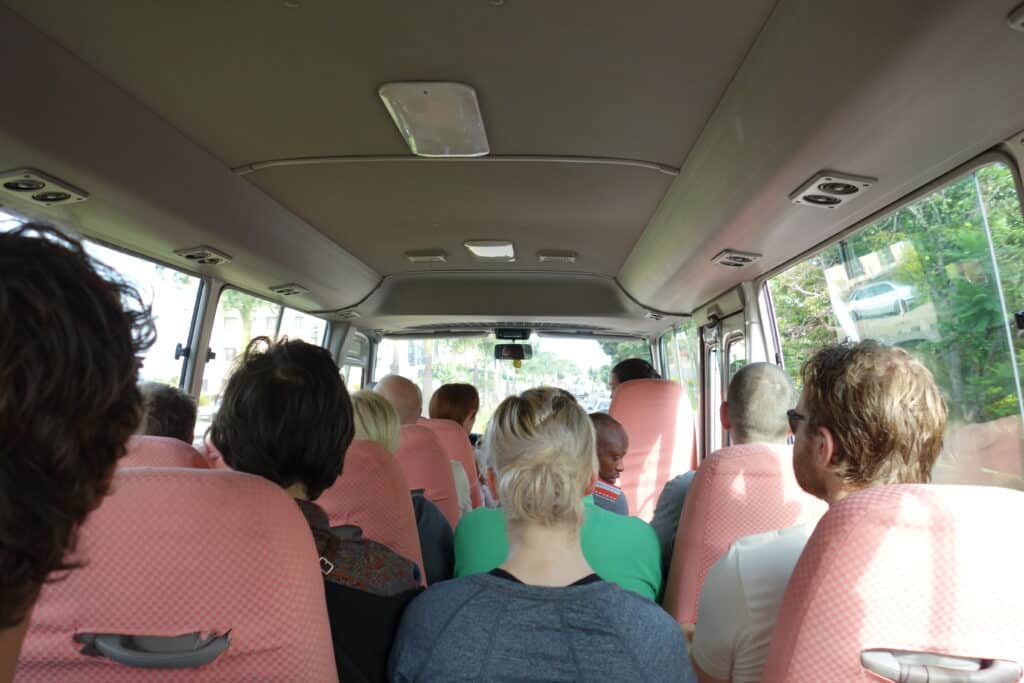
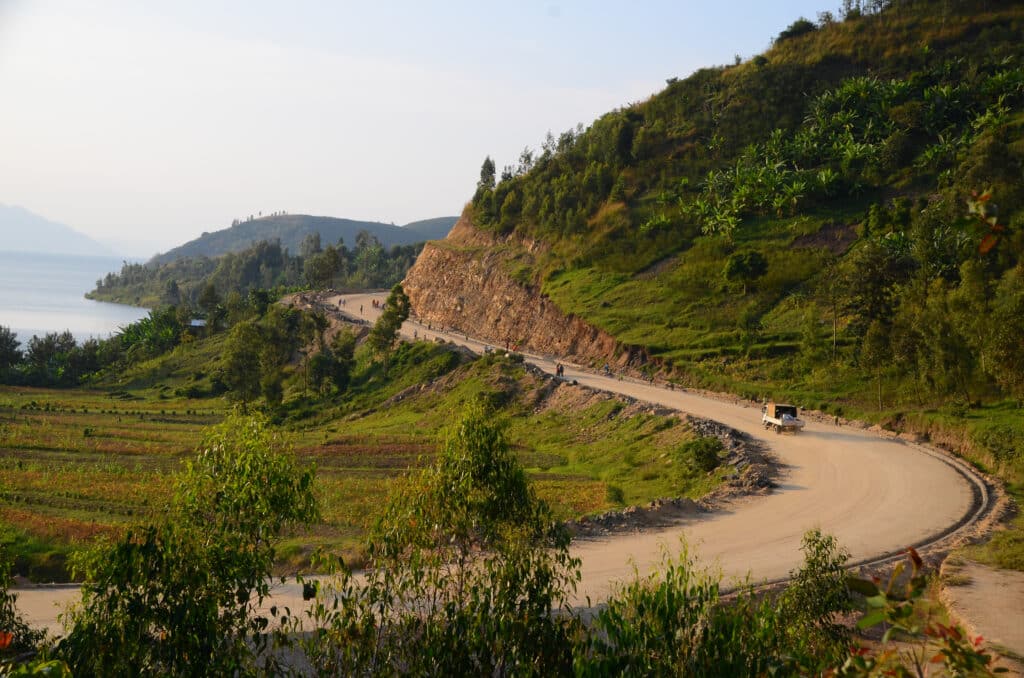
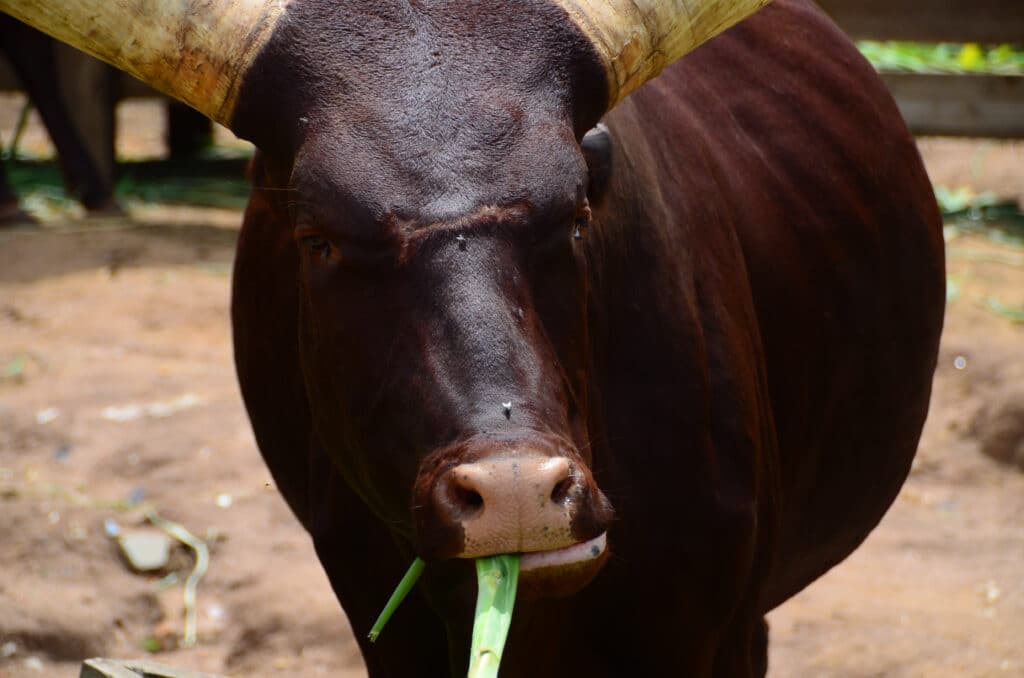
Spectacular surroundings
From the king's palace, the journey continues towards Southern Province. After a few hours on the road, we turn off onto a narrow gravel road with deep ruts and views of long, gentle mountainsides rolling down towards the valley floor to the right of the car. The winding mountain passage is not intended for minibuses with stiff springs, or any other vehicle for that matter, and several of the trip's participants are sceptically watching the terrain as it rolls down several hundred metres. But the driver knows his Toyota and handles the terrain with the utmost confidence.
We're joined by a group of children enthusiastically running after the car for several kilometres, barefoot and at an impressive pace. After a few bumpy miles, we see a large washing station at the bottom of a large valley surrounded by rounded mountain peaks.
1,000 miles from the distillery
In order to save the Toyota for the trip home, we climb the hills down to the washing station on foot. Here we meet dozens of people sorting coffee berries on African beds, the long and raised mesh tables that are common in African coffee countries. They are smiling and friendly, but naturally also amazed at the sight of 30 shorts-clad Norwegians, each with a camera around their neck.
Sam shows us around the site and takes us through the painstaking sorting and refining process. The work and quality assurance here in Southern Province is crucial for the burning that will take place more than 1,000 kilometres away at Ryen in Oslo.
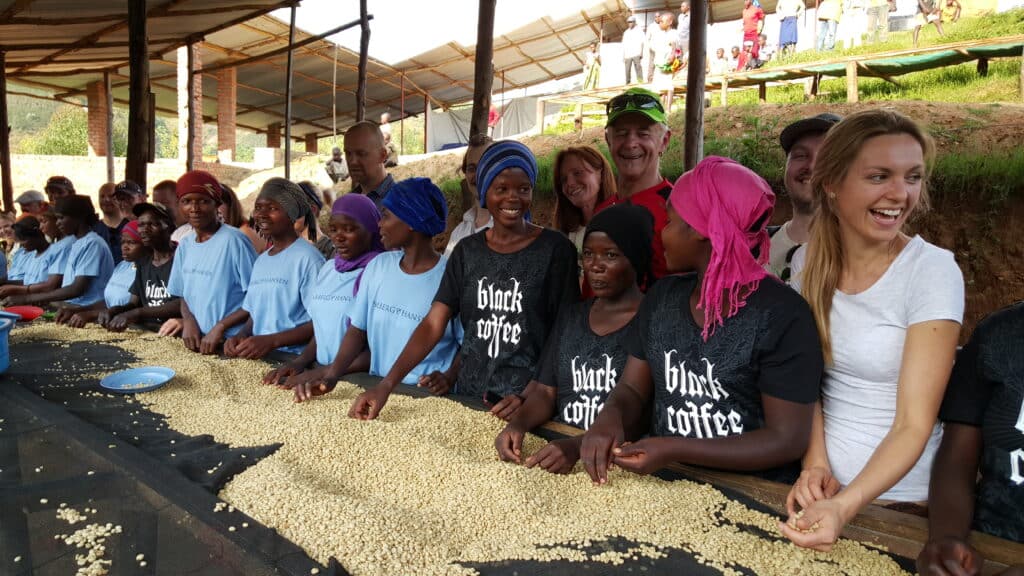
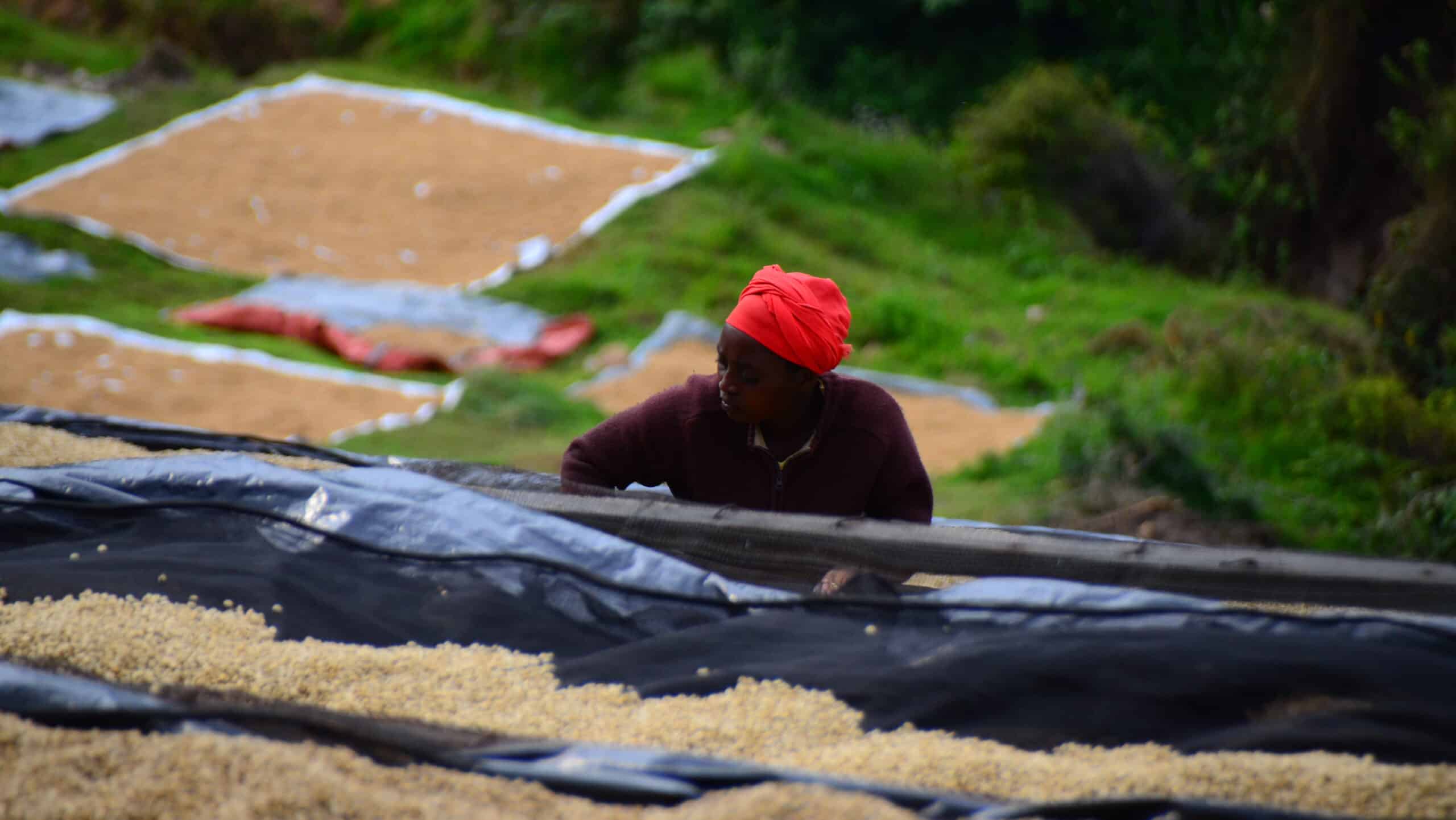
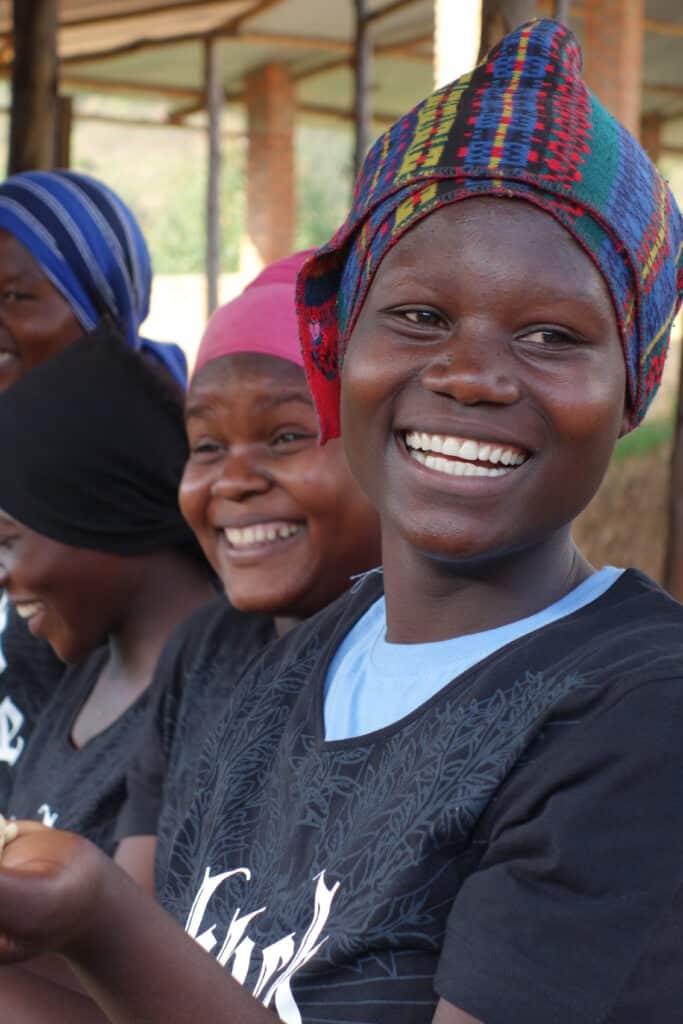
Transformed nation
When travelling through Rwanda, it's impossible to look past the 1994 genocide, which took more than 800,000 lives in 100 days. This is where Ephiane Mukashyaka lost her husband, and Samuell her father, over 21 years ago. Those horrific days were the culmination of a long-running conflict between the Hutus and Tutsis, two constructed peoples who had lived together as family, friends and neighbours for generations. From an almost hopeless situation, characterised by extreme poverty and mistrust among the population, Rwanda has used the last 20 years to create unity and economic growth.
Today, Rwanda is home to one of Africa's fastest growing economies, with coffee as one of its most important exports. At the same time, Ephiane Mukashyaka and her family have turned a hopeless situation into a success story that inspires coffee producers across the country. Through Buf Café, the family now processes coffee for almost 300 farmers in the areas around their two washing stations, Remera and Nyarusiza.
Adventurous work
Back in the coach, the Toyota's snout points in the direction of Nyungwe Forest Lodge, which is spectacularly situated on the edge of the rainforest in Nyungwe Forest National Park. This is where we'll be staying for the next three nights, surrounded by tea plants, wild monkeys and Rwanda's unique green mountain peaks. Travelling to the coffee world's many producer countries is the most important job we do to be able to offer a selection of the world's best coffee. Usually, these trips are reserved for our in-house buyers, who have the knowledge and expertise to find coffee that meets our expectations and requirements. For the rest of us, travelling to Rwanda was a unique opportunity to meet the people, the stories and the environment behind the product we work with every day.
